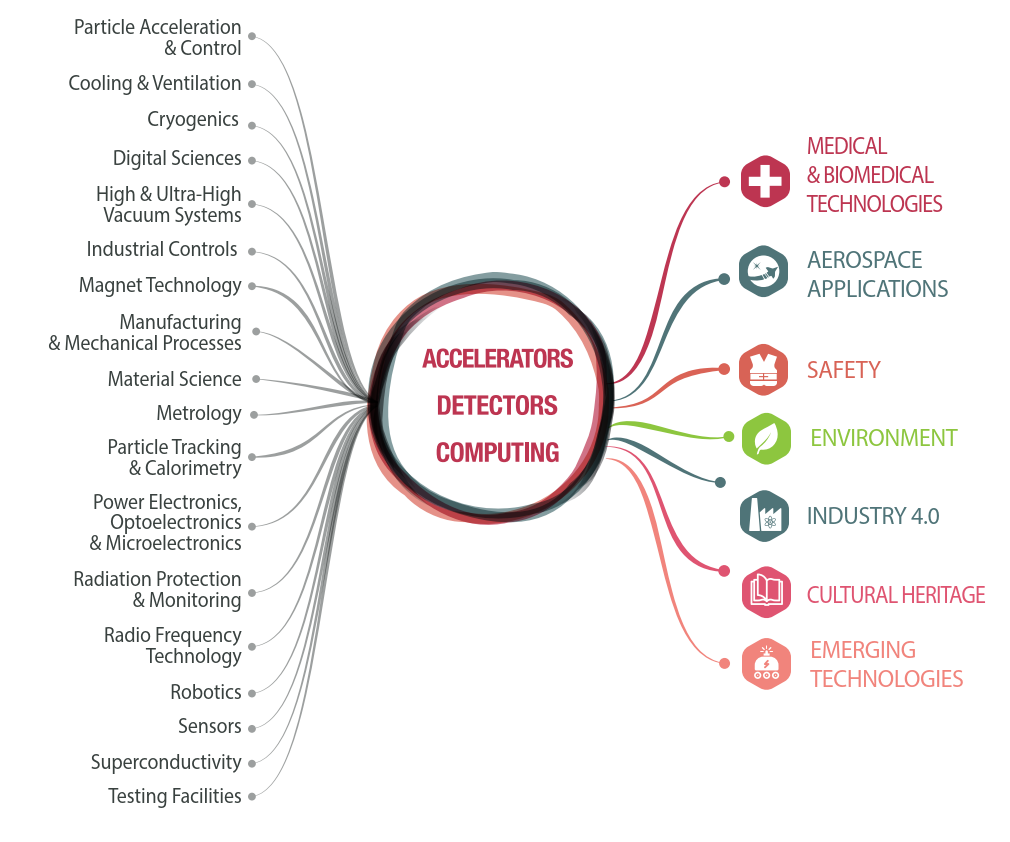CERN develops state-of-the-art technologies, some of which have considerable potential impact on society in many areas. To make sure these technologies reach this goal, CERN’s Knowledge Transfer, KT, team has identified 18 CERN domains ranging from particle acceleration to robotics that have concrete applications in seven areas including the environment. The team actively engages with companies from start-ups to SMEs and large organisations. CERN also supports innovation through on-site activities and Business Incubation Centres. In addition to the ActiWiz software (see Waste), here are some more current projects addressing environmental issues.
 |
|
| CERN’s various areas of expertise translate into impact across several areas of society. |
Reducing air pollution from maritime traffic using particle accelerators
Accelerator Research and Innovation for European Science and Society, ARIES, a European Commission co-funded project coordinated by CERN, is looking at ways to improve the performance, availability, and sustainability of particle accelerators. Through a competitive process, it has identified promising R&D projects for further support, one of which could contribute significantly to greening maritime transport. Maritime traffic is the backbone of global trade, but it also generates significant air pollution. One ARIES-supported project is testing a system to break down pollutants with an electron-beam accelerator before safely extracting them.
Improved water and pesticide management with fibre optic sensors
The Fibre Optic Sensor System for Irrigation, FOSS4I, collaboration uses particle detection technology from the CMS experiment at CERN to develop a smart water-saving solution for agriculture. FOSS4I’s optimised irrigation system aims to monitor and measure temperature, humidity, concentration of pesticides, fertilisers and enzymes in the soil of cultivated fields, thus contributing to sustainable agriculture.
In Focus
Silje Uhlen Maurset works with entrepreneurship development in CERN’s Knowledge Transfer group, KT.
— What is CESP and how does it relate to a positive impact on the environment?
SUM: CERN’s Entrepreneurship Student Programme, CESP, brings graduate students from around the globe for five-weeks of training with CERN experts and KT professionals. AquaVision is a project that has emerged from CESP. It is developing the first real-time detector for microplastics in water.
The detection of microplastics could help build better and more efficient water filtration solutions and raise awareness of the dangerous effects that microplastics can have on humans and the environment. CESP was instrumental in providing the student team with the range of skills needed to launch the project.
Learn more
Questions regarding this report may be addressed to Environment.report@cern.ch.
